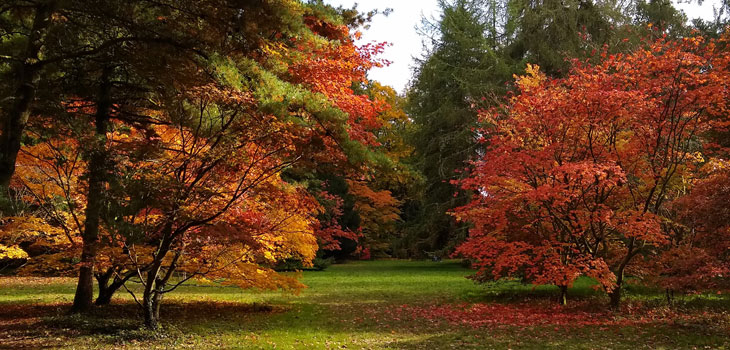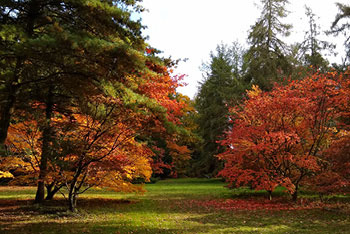Teaming up to Protect Trees for Future Generations
We are rapidly approaching our favourite time of year when our trees are at their most vibrant and colourful…
...but ensuring that these magnificent plants continue for future generations to enjoy is a mammoth task that takes decades of planning and care, especially in a world where the impacts of climate change, pests and diseases and other dangers threaten their very survival!
At least one in five of the world’s tree species are threatened with extinction. As the National Arboretum, we play a vital role in protecting and conserving these trees; and we have recently partnered with Botanic Gardens Conservation International (BGCI) on an exciting new initiative to conserve targeted groups of the world’s most threatened tree species.
BGCI is a membership organisation (including Westonbirt) that represents botanic gardens in more than 100 countries. The world’s largest plant conservation network, BGCI supports and empowers its members and the wider conservation community so that knowledge and expertise can be shared and used to help reverse the threat of extinction facing plants.

As part of the successful Global Trees Campaign, BGCI is establishing a suite of Global Conservation Consortia (GCC) with specialist knowledge of particular genera that are technically challenging to conserve and manage. Together these consortia will work to conserve some of the world’s most threatened plant groups. As of September 2020, five GCC have been initiated:
- Rhododendron: 316 Rhododendron species have been assessed as threatened; Rhododendron can be found in temperate and tropical regions, usually in moist, mountainous areas.
- Magnolia: 148 species in this group are threatened; like Rhododendron, they occur in temperate and tropical regions, usually in mountainous areas.
- Maple, Acer: Experts have now confirmed that 36 Acer species are threatened. Maples usually grow in temperate climates, in lowland and mountainous regions.
- Oak, Quercus: Containing 127 threatened species, this group occurs in a wide range of habitats including temperate mixed forest, cloud forest and subtropical broad-leaved forest.
- Cycads: The oldest living seed plants, at least 62% of species are threatened in the wild. They occur naturally in parts the Americas, Asia and Australia. However, many species are now restricted to a small number of plants in botanic gardens.
And for the next 18 months, Westonbirt will be hosting GCC Manager, Dan Crowley who will be coordinating the initiative; some of you may remember him as Westonbirt’s former Dendrologist!
Keep an eye on the blog as for more information on the project.
